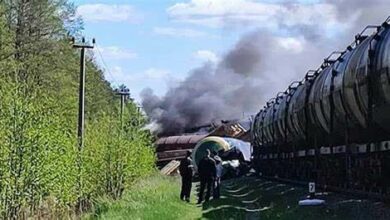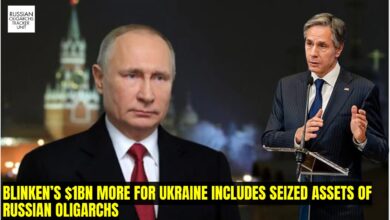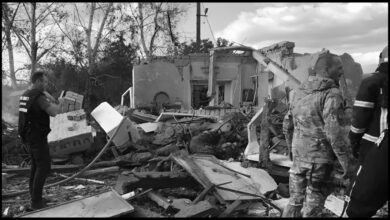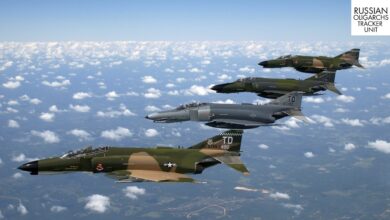Putin Declares Unwavering Stance: No Peace in Ukraine Until Russian Objectives Met
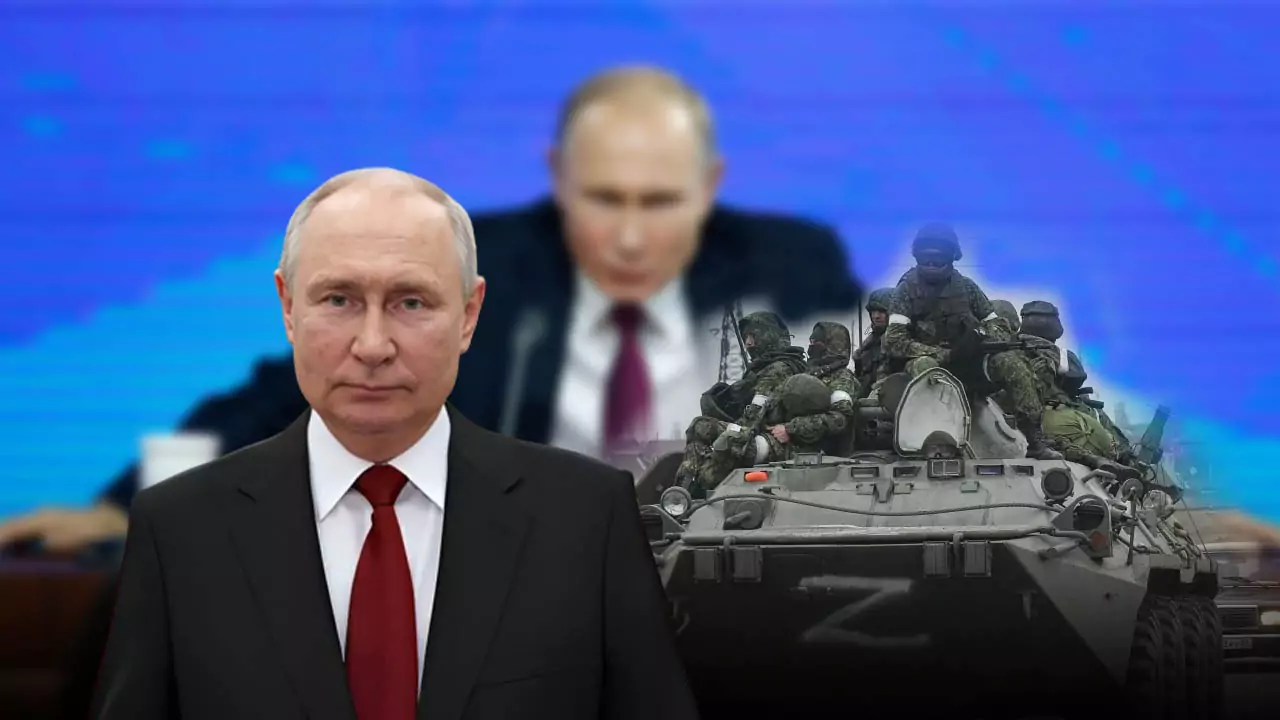
In an attempt to instill confidence in his war machine, Vladimir Putin stated, “there will only be peace in Ukraine when we achieve our aims,” during his first television appearance since initiating the invasion.
Following Kyiv’s mincing counteroffensive this summer and delays in US military aid to Ukraine due to partisanship in Washington, DC, the Russian president adopted a hardline stance, calling for the “denazification of Ukraine, its demilitarization and neutral status” and demanding unconditional surrender.
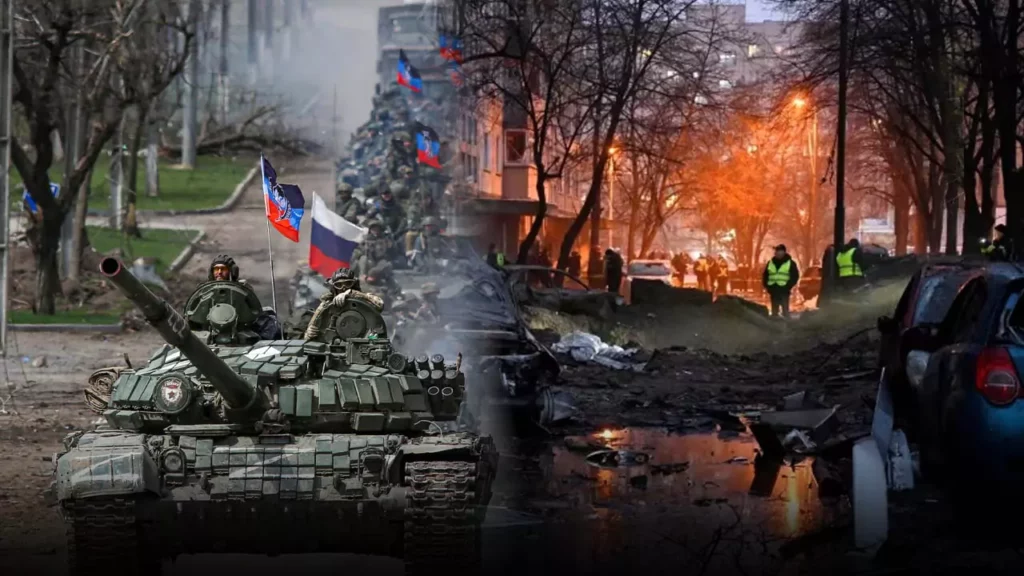
Analyst Tatiana Stanovaya of the Carnegie Russia Eurasia Center stated in an email that Putin had just offered peace to the west, but only if Ukraine completely submitted.
The annual culmination of state TV camp and Kremlin extravagance, the year-end press conference lasted over four hours and featured questions from AI-generated Putin, regional journalists fighting for a microphone in a studio, and soldiers beamed in from the front lines. In response, Putin refuted the widely held belief that he had been appearing in public with a body double.
In addition, the president made his initial comments regarding Wall Street Journal reporter Evan Gershkovich’s detention, suggesting that was pursuing talks with the United States that might result in the release of both Gershkovich and Paul Whelan, another American who is detained in Russia.
Putin stated that Russia and the US were in constant communication over the matter. “We want to reach an agreement, and these agreements must be mutually acceptable and must suit both parties,” Putin stated.
Last week, the United States announced that Russia had turned down a “substantial” offer to release the two American prisoners. It’s thought that trading prisoners is involved in the offer.
The Wall Street Journal reporter would stay in custody at least until the end of January due to an alleged spying charge against which he, the Wall Street Journal, and the US government deny, as a Moscow court had upheld his detention earlier in the day.
Following Russian troops‘ withdrawal from positions in eastern and northern and the military’s announcement of a mass mobilization, during which many men fled the nation or went into hiding to avoid conscription, the Kremlin called off the press conference from the previous year. It was thought that Putin was attempting to sidestep awkward inquiries about the conflict.
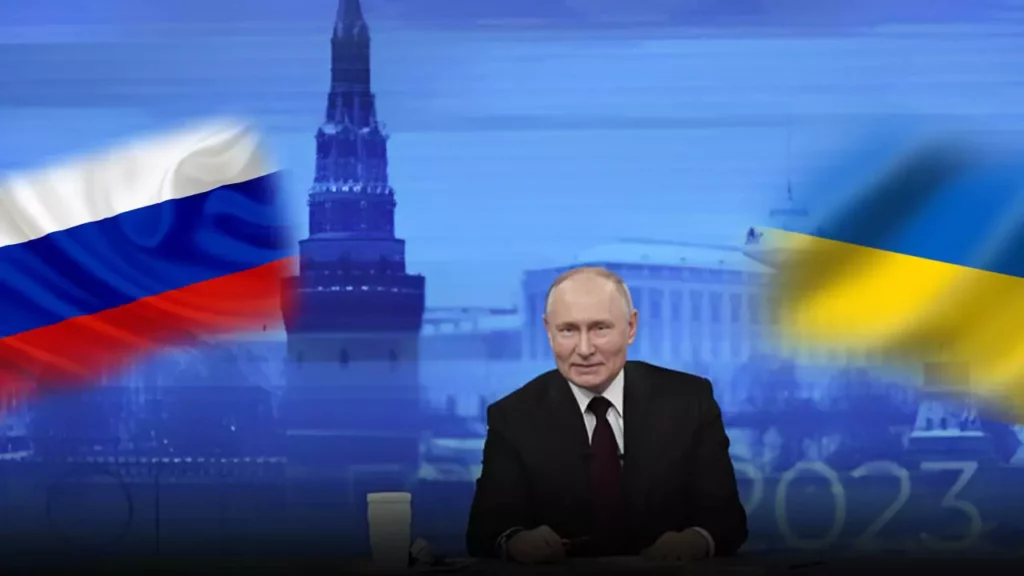
This year, the president used the occasion to allay domestic fears about the war by asserting that the Russian army had recruited close to 500,000 contract soldiers and that the armed forces wouldn’t need to declare a fresh round of mass mobilization.
In addition, he offered a positive evaluation of the conflict, claiming that Russia had fortified its front-line defensive positions. He downplayed the Ukrainian beachhead that had been established on the Dnipro River’s eastern bank, claiming that Russian troops had been forced to retreat a short distance and referring to the Ukrainian operation as a “last-ditch” effort.
He added that there would soon be no more western assistance for Ukraine. “Ukraine produces almost nothing today,” he remarked. “Everything is being provided at no cost. However, that might eventually run out. They also appear to be gradually running out.
Public Weariness Grows as Russians Question Putin on Duration of Ukraine War

According to recent polls, there are those in the nation who are becoming weary of the war that doesn’t seem to be ending. When asked what questions they would ask Him, the most common response was when the invasion of would end, according to an independent poll conducted by the Levada Center.
According to a different survey, nearly half of Russians wanted to start negotiations to end the conflict, surpassing those who wanted to continue fighting for the first time.
Though they were not discussed during the conference, some Russian questions that were submitted and subsequently projected onto the studio walls revealed a growing sense of frustration over the war.
“When does the conflict end? When will the heavens be at peace? When will the peace negotiations start? peruse a single message that was momentarily displayed on a TV screen behind Putin. “Hey, how can I relocate to the Russia that Channel One talks about?” peruse an additional
Putin, the Russian leader, gave no timeframe for the end of the war but emphasized the resilience of Russia’s wartime economy, which has successfully weathered unprecedented western sanctions. The economy is expected to grow by 3.5% this year, with sectors like automotive and aircraft industries rebounding from western sanctions. However, admitted inflation would reach 8% and issued a rare apology when a pensioner complained about the price of eggs. Economists have linked rising inflation to the country’s ballooning war spending.
Alexander Kynev, a Russian political analyst, said Putin’s laidback and unaggressive tone was the “correct and only possible pre-election message.” He emphasized that everything is going fine and there is no reason to radically change anything. In 2000, Putin advised his younger self to be wary of “excessive naivety and gullibility” regarding western partners and to believe in the great Russian people.




